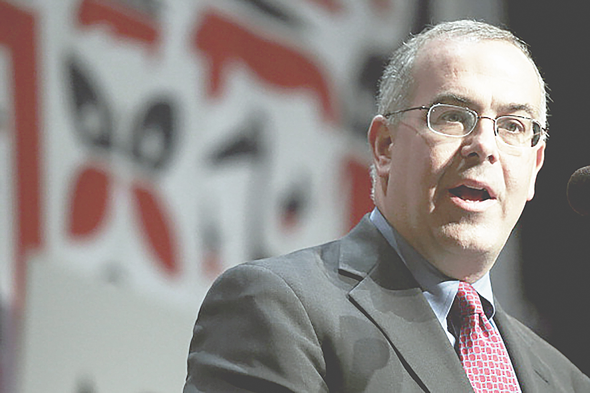
I first came upon the word “acedia” while reading a book about culture when I was a student in the major seminary. It’s not a word that I hear my contemporaries using. In fact, except in this column, I don’t use it much either. My understanding is that the word means spiritual sloth or apathy. Persons suffering from acedia either have no interest in things spiritual or are unable to be excited or enthusiastic about the direction that their lives are taking.
Comments by New York Times columnist David Brooks about acedia are insightful and important. Brooks describes acedia in one section of his book “The Second Mountain” (New York: Random House, 2019, $28.00, pp. 346). Noting that one commentator thinks that it is primarily a female problem arising from society’s ignorant attitudes about women and work, Brooks writes the following:
“But I notice that many men also have a sensation that they are under-living their lives. Centuries ago there was a common word for what these people are going through: acedia.
This word is used less frequently today, which is peculiar since the state it describes is so common. Acedia is the quieting of passion. It is a lack of care. It is living a life that doesn’t arouse your strong passions and therefore instills sluggishness of the soul, like an oven set on warm. The person living in acedia may have a job and a family, but he is not entirely grabbed by his own life. His heart is over there, but his life is over here.
“Desire makes you adhesive. Desire pushes you to get close — to the person, job, or town you love. But lack of desire makes you detached, and instills in you over time an attitude of emotional avoidance, a phony nonchalance. In short, the meritocracy encourages you to drift into a life that society loves but you don’t. It’s impossible to feel wholehearted.” (p. 24)
I think that Brooks’ observations are accurate. At St. John’s University, I urge students to choose a vocation and a job that they love. Whenever I do that, I add that I know that this is easier said than done. I confess that I feel a little guilty encouraging them to find a vocation and job they love. My vocation-job is priest-professor. I admit to the students that I love being a priest and I love being a professor.
Though I have many faults, I don’t think I live in acedia. I try to convince the students that no matter how high a salary is, if the person receiving the salary cannot see the job as in some way important and meaningful and worth the time and effort required to do the job well, then the experience of working may be dehumanizing rather than fulfilling.
How can people who are experiencing acedia either at work or in their interpersonal relations regain an enthusiasm, an excitement, a sense of being involved in a great drama? What can they do?
As a priest and as a philosopher, I immediately think of religious faith and also some of the great truths that philosophy has uncovered. I am not so naïve to think that I can offer some solution in one column that will work for all who experience acedia. I do believe, however, that some religious and philosophical truths can help everyone.
Some of the most important truths are the following: God loves every person with an infinite love that will never be withdrawn; God calls everyone to help in the building of God’s Kingdom; there is no such reality as an unimportant or insignificant person; every person has a unique gift to offer which no other person can offer, and that gift is the person himself; no one realizes how wonderful and beautiful a human life is even if an individual wishes parts of his or her life were different; even if it is difficult to find a particular job as fulfilling as someone might wish, there are an unlimited number of possible interpersonal relations that can deepen someone’s involvement in the mystery of salvation.
These truths have the potential to enlighten everyone’s life, whether the person be the pope or one of those people working at jobs they would never have chosen if circumstances had not forced them to choose.
I hope a deep appreciation of the truths I have mentioned might help people in acedia. Certainly I don’t think anyone should settle for a life that is in no way fulfilling. That would be a terrible waste. God’s gift of life has tremendous potential.
One way of saying “Thank you” for that gift is living life as fully as possible. We want the “Thank you” we say in every Eucharistic celebration to influence all our dreams and decisions.
Father Lauder presents two 15-minute talks from his lecture series on the Catholic Novel, Tuesdays at 9 p.m. on NET-TV.
